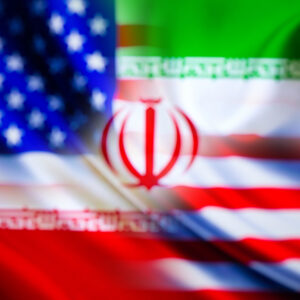For an alternate viewpoint, see “Counterpoint: Accommodating Iran Would be a Mistake.”
Four years after President Donald Trump undermined U.S. national security by withdrawing unilaterally from the Iran nuclear deal for political gain, the United States is still experiencing the consequences.
The deal, formally known as the Joint Comprehensive Plan of Action, blocked Iran’s path to a nuclear bomb, de-escalating a critical security risk and keeping service members out of harm’s way. Trump’s withdrawal put the threat of a nuclear Iran back on the table and put us in a weaker position to deal with other grave threats.
Thankfully, President Biden is engaged in serious negotiations to bring Iran back to the international agreement. However, a return to the Plan of Action is still under threat by domestic political squabbles.
A case in point: the key sticking point is the status of the Iranian Revolutionary Guard Corps designation as a foreign terrorist organization.
Of all the debates surrounding the deal, the Revolutionary Guard designation is the most peculiar. It’s a largely symbolic label. In my career in the U.S. military, I understood that symbolism is important, but I knew substance to be most critical. Tough talk is cheap — and often risky — especially when U.S. security and military escalation are on the line. The foreign terrorist designation should not stand in the way of the United States preventing Iran from acquiring nuclear weapons. We need to keep our eye on the ball.
Even if the Biden administration lifts the label, Iran’s Revolutionary Guard will remain heavily sanctioned. The corps has been designated a Specially Designated Global Terrorist since 2017. The Revolutionary Guard’s foreign special operations arm, the Quds Force, is responsible for Iran’s most egregious activities and has been labeled a global threat since 2007. Beyond that, Iran’s government has been listed as a state sponsor of terror by the United States since 1984.
Bottom line: The Revolutionary Guard will remain a global pariah no matter what.
It is dangerous to allow a symbolic foreign terrorist designation to prevent the substantive restrictions on Iranian hardliners that would come with a return to the nuclear deal. The Revolutionary Guard is a bad actor and an adversary, and without meaningful diplomatic action it could get its hands on a nuclear weapon. We only need to look at Russia to see how nuclear weapons can embolden adversaries to menace their neighbors.
The Revolutionary Guard designation is trivial for our overarching priority: preventing an Iranian nuclear weapon. And it is inconsequential when it comes to other security priorities. The label has had no meaningful effect on curbing terrorism or enforcing human rights sanctions.
The Trump administration imposed the designation to prevent the Biden administration from rejoining the nuclear deal — despite top Pentagon officials and national security analysts warning that the move would backfire, harming U.S. troops and allies in the region. They were right. In the year after Trump designated the Revolutionary Guard a terrorist organization, attacks by Iranian proxy forces increased by 400 percent.
Far from stopping the Revolutionary Guard, the foreign terrorist listing emboldened them. The Trump administration’s withdrawal from the Iranian nuclear deal unleashed Iran’s nuclear program rather than containing it. This policy failure should not politically bind the Biden administration — it should give the president more ammunition to end a dangerous standoff and re-enter the nuclear agreement.
The Iran nuclear deal remains in U.S. security interests and the interests of our allies. With Iran’s nuclear program off the table, we can better address other Iranian threats like the destabilizing activities in the region. Critics argue that the only way to deal with Iran is to withdraw from negotiations and double down on sanctions. But as it stands, the United States has exhausted its leverage under the Trump administration’s “maximum pressure” strategy, which only served to unshackle Iran’s nuclear program. A negotiated solution to Iran’s nuclear program is the only reasonable path forward.
This is why it is so disappointing that some senators voted last week for a non-binding “Motion to Instruct” that suggests they support hamstringing the president by adding non-nuclear demands to the nuclear negotiations, risking their collapse. The nuclear deal opens opportunities to tackle other issues, but we cannot squeeze every issue into a non-proliferation agreement. We never did that with the Soviet Union, and it does not make sense to do it with Iran.
The senators should remember the Trump Iran policy was a colossal failure. Today, President Biden can reverse that failure by rejoining the agreement that removes the Iranian nuclear threat and lowers tensions. It is the right move for U.S. national security. We cannot let what appears as a political challenge of righting one failed policy prevent us from addressing the far more severe threat of a nuclear-armed Iran. And we should not be bound by the shallow talking points of the Trump administration and hawks who have been itching for war with Iran for decades.
The decision in front of U.S. policymakers now is whether they will get caught in a sanctions trap set by the chicken-hawks who pushed the U.S. to the brink of war with Iran, and in the process make a diplomatic resolution nearly impossible.
As a military man of 30 years with three children currently serving, I would implore our civilian leaders to put country over politics and do everything in their power to rejoin the nuclear deal. Let us not sanction our way into war. Instead, let us show the courage to choose peace.


